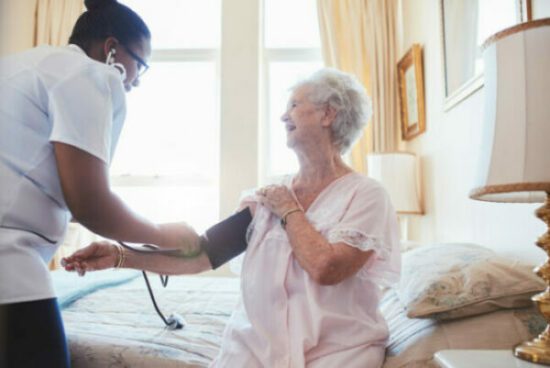Wessex and the West of England Academic Health Science Networks (AHSNs) and West Hampshire CCG, funded by Health Education England, have collaborated to produce a series of free videos and e-learning materials to support staff working in care homes to care for residents who are at risk of deterioration.
As recognised in a recent paper supported by North East and North Cumbria AHSN, identifying acute illness including sepsis amongst older adults in care homes can be difficult and opportunities to initiate appropriate care may be missed, if illness is not recognised promptly.
The short videos describe how to take measurements from residents correctly (such as blood pressure and oxygen saturation), spots the signs of deterioration, and prevent the spread of infection.
The films are available to watch on YouTube.
You can also access the films as part of the full training on Health Education England’s e-Learning for Healthcare (e-LfH) Hub (www.e-lfh.org.uk), an educational web-based platform that provides quality assured online training content for the UK’s health and care workforce, from this link.
Natasha Swinscoe, national lead for patient safety for the AHSN Network said: “Patient safety is a guiding principle for all AHSNs. Our care homes report highlighted numerous successes that AHSNs have had working with care homes across the country. Collectively, these have the potential to save many lives and tens of millions of pounds. I am excited to see the launch of these videos, which will support care home staff to be trained in a consistent way to recognise and respond to the soft signs of deterioration.”
Guidance for care home staff to register for e-Learning for Healthcare
Visit the e-Learning for Healthcare portal and select the ‘Register’ button. Select the option ‘I am a care home or hospice worker’ then enter your care home / hospice name or postcode and select it from the options available in the drop-down list. Finally enter your care home / hospice registration code and select ‘Register’. You may need to see your employer to get this code.
If your employer does not have a code, then they need to contact the e-LfH Support Team. The Support Team can either give the employer the registration code or arrange a bulk upload of all staff.
Detailed instructions on how to gain access are available here and you can read this quick start guide to the e-LfH hub.

“Health equity is the attainment of the highest level of health for ALL people. Achieving health equity requires valuing everyone equally with focused and ongoing societal efforts to address avoidable inequalities, historical and contemporary injustices, and social determinants of health — and to eliminate disparities in health and health care.” (health.gov) Within the NHS there [...]

Sickle cell disease (SCD) is a serious and lifelong health condition. People with SCD produce unusually shaped red blood cells that can cause problems because they do not live as long as healthy blood cells and can block blood vessels. This can result in suffers experiencing painful episodes, called sickle cell crises, as well as anaemia, [...]

At the Royal Society of Medicine’s Tackling Inequalities conference it was clear from the passion in the room that great progress has been made across the system to better support some of our most under-served communities. To maintain this momentum, we must not just embed tackling health and healthcare inequalities in all that we do, [...]







